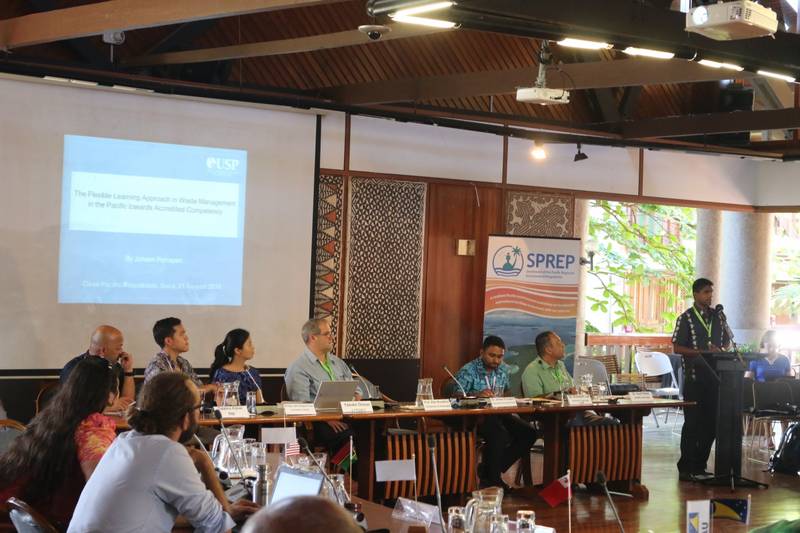Related News

The Institute of Applied Sciences (IAS) Director Dr Johann Poinapen recently spoke at the second Clean Pacific Roundtable that was held from the 20-22 2018 August at the Pacific Islands Forum Secretariat (PIFS). The event was coordinated by the Secretariat of the Pacific Regional Environment Programme (SPREP) with the support of Japan International Cooperation Agency (JICA), the European Union (EU) and other partners and brought together relevant partners, government officials and stakeholders from around the region to discuss challenges, solutions and actions to address waste management across the Pacific.
Dr Poinapen was a panel speaker on the Hazardous Waste Management discussion held on the first day of the talks. He shared the experience and capabilities of USP on the Chemical Management Training, conducted by IAS in 2016, which covered 14 Pacific Island Countries (PIC). USP’s experience involved the development of the relevant topics, training manual, best practices, toolkits and other resources to empower practitioners in the chemical industry across the Pacific. He highlighted on key learning including best practices that are necessary, relevant and most applicable to the Pacific region.
He elaborated, while sharing the framework for a National Action Plan, that “Strengthening of information sharing and cooperation between agencies are necessary for the successful implementation of the Chemical Management National Action Plan”.
At the Clean Pacific Roundtable, he shared that a key realisation during the implementation of the training programme in the 14 PICs was that there is a “clear evidence of a lack of knowledge and capacity for the proper management of chemicals across the region – from poor storage, lack of Personal Protective Equipment (PPE), to improper labelling and safety signage and inappropriate disposal methods”.
Over 400 people from the region were trained and they found that this training was an eye-opening experience as most of the practitioners were unaware of the many hazards associated with chemicals they are dealing with. Dr Poinapen remarked that proper management of hazardous wastes in the region reduces their impact on the environment. He further added that continuous training is needed to further enhance the awareness of the hazards of chemicals and to strengthen the region’s capacity to implement appropriate chemical management procedures to ensure that public and environmental health is safeguarded.